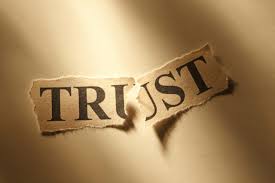
Trust is the cornerstone of any healthy and lasting relationship. However, trust cannot exist without emotional safety. Emotional safety refers to the sense of security one feels within a relationship, knowing that they can express their true self, emotions, and vulnerabilities without fear of judgment, rejection, or harm. When emotional safety is present, trust flourishes, allowing couples to navigate challenges, resolve conflicts, and deepen their connection.
In this article, we’ll explore the importance of emotional safety in building trust and how couples can foster this crucial aspect of their relationship.
1. Understanding Emotional Safety in Relationships
Emotional safety is the foundation of a strong partnership. It means creating a safe space where both partners can be open and honest without fear of negative consequences. In such an environment, individuals feel valued, heard, and understood, which builds trust over time.
In emotionally unsafe relationships, partners may withhold their true feelings, avoid conflict, or feel constantly criticized, leading to erosion of trust and emotional distance. Emotional safety is, therefore, a prerequisite for building and maintaining trust.
2. Why Emotional Safety is Critical for Trust Building
Trust is not something that can be demanded; it must be earned over time through consistent actions and behaviors. Emotional safety plays a key role in this process by:
- Promoting Vulnerability: Vulnerability is essential for intimacy and trust. When partners feel emotionally safe, they can share their fears, insecurities, and needs without the fear of being dismissed or ridiculed.
- Encouraging Honest Communication: Open and honest communication is a cornerstone of trust. Emotional safety allows partners to express their thoughts and feelings freely, even during disagreements, without fearing emotional retaliation.
- Reducing Conflict Escalation: Emotional safety prevents conflicts from escalating into hurtful arguments. It enables partners to approach conflicts with empathy and understanding, fostering effective conflict resolution strategies.
- Building Emotional Intimacy: Emotional safety is closely tied to emotional intimacy, which is essential for a deep, trusting bond. Partners who feel emotionally safe with each other are more likely to engage in meaningful conversations and connect on a deeper emotional level.
3. Practical Ways to Create Emotional Safety in Your Relationship
Building emotional safety takes time and effort, but the results are worth it. Here are some strategies to create emotional safety and build trust in your relationship:
a. Practice Active Listening
Listening is one of the most important tools for creating emotional safety. Active listening involves giving your full attention to your partner, validating their feelings, and responding with empathy.
- Tip: When your partner speaks, avoid interrupting or offering unsolicited advice. Instead, acknowledge their emotions by saying, “I understand how you feel” or “It makes sense that you’re upset.”
b. Cultivate Mutual Respect
Respect is essential for emotional safety. This means treating each other’s feelings and opinions with kindness, even during disagreements. Avoid belittling or dismissing your partner’s experiences.
- Tip: Use “I” statements during conflicts to express how you feel without placing blame. For example, say, “I feel hurt when…” instead of “You always…”.
c. Be Mindful of Your Partner’s Emotional Needs
Everyone has different emotional needs, and part of creating emotional safety is understanding and honoring these needs. This includes being attuned to your partner’s boundaries and offering reassurance when they feel insecure.
- Tip: Regularly check in with your partner to ask how they’re feeling or what they need from you emotionally. This shows that you’re invested in their emotional well-being.
d. Avoid Criticism and Judgment
Criticism and judgment are toxic to emotional safety. Even in moments of frustration, it’s crucial to approach your partner with compassion and avoid making them feel attacked.
- Tip: If you feel upset about something, express your concerns in a calm and constructive manner. Focus on the behavior rather than attacking your partner’s character.
4. The Link Between Emotional Safety and Effective Conflict Resolution
Conflict is inevitable in any relationship, but how couples handle conflict can either strengthen or weaken trust. Emotional safety plays a pivotal role in conflict resolution by creating a space where both partners can address issues without fear of escalation.
Effective conflict resolution strategies include:
- Maintaining Calmness: Emotional safety allows couples to remain calm during conflicts, reducing the chances of hurtful exchanges.
- Taking Responsibility: When emotional safety is present, both partners are more likely to take responsibility for their actions and apologize when necessary.
- Focusing on Solutions: Instead of getting stuck in blame cycles, emotionally safe couples focus on finding solutions together, fostering collaboration rather than division.
When conflict is resolved in a safe and supportive environment, trust grows stronger, as both partners know they can work through difficult moments without damaging the relationship.
5. How Emotional Safety Builds Trust and Emotional Intimacy
Emotional safety and trust go hand-in-hand with emotional intimacy. Emotional intimacy refers to the closeness and connection that partners experience when they can openly share their innermost thoughts and feelings. Without emotional safety, this level of vulnerability and intimacy is nearly impossible to achieve.
When partners feel safe to express their true selves, they naturally build deeper emotional intimacy. This leads to:
- Increased Trust: As emotional intimacy grows, so does trust. Couples who trust each other can rely on one another during times of stress or uncertainty.
- Deeper Connection: Emotional intimacy fosters a deep connection that transcends physical attraction, allowing couples to feel emotionally supported and understood.
6. Overcoming Relationship Challenges by Building Emotional Safety
Every relationship faces challenges, but emotional safety can help couples overcome these obstacles together. By fostering a safe and trusting environment, couples can tackle difficult issues such as navigating cultural differences in marriage or overcoming relationship challenges related to infidelity or long-distance dynamics.
Some additional healthy relationship tips to consider:
- Create Rituals of Connection: Whether it’s having weekly check-ins or a nightly chat before bed, consistent rituals help maintain emotional safety and trust.
- Celebrate Vulnerability: Embrace moments of vulnerability as opportunities to grow closer and build a more trusting relationship.
- Prioritize Personal Growth: By focusing on personal growth and self-care in relationships, both partners can bring their best selves to the partnership, fostering mutual respect and emotional security.
Conclusion
Emotional safety is vital to building and maintaining trust in any relationship. Without it, partners may struggle to open up, communicate effectively, or resolve conflicts in a healthy manner. By creating a relationship built on emotional safety, couples can foster deeper emotional intimacy, navigate challenges with grace, and build trust that will last a lifetime.
By implementing these strategies, couples can create a safe and trusting environment where both partners feel valued and supported, ensuring the relationship continues to thrive for years to come.
Thank you for reading!
What are your thoughts? Share in the comments!
If you found this helpful, share it with friends.
Share this content:





